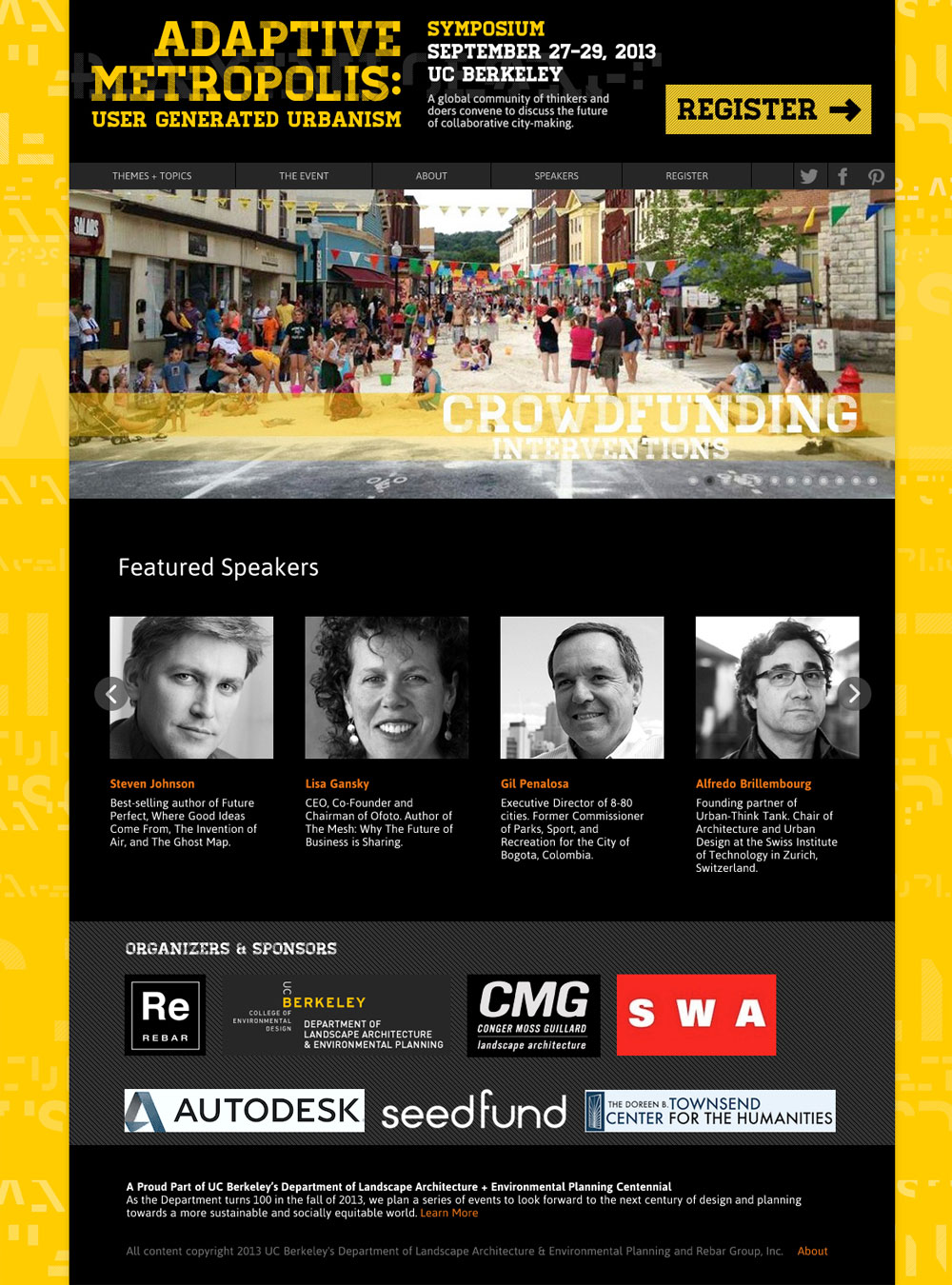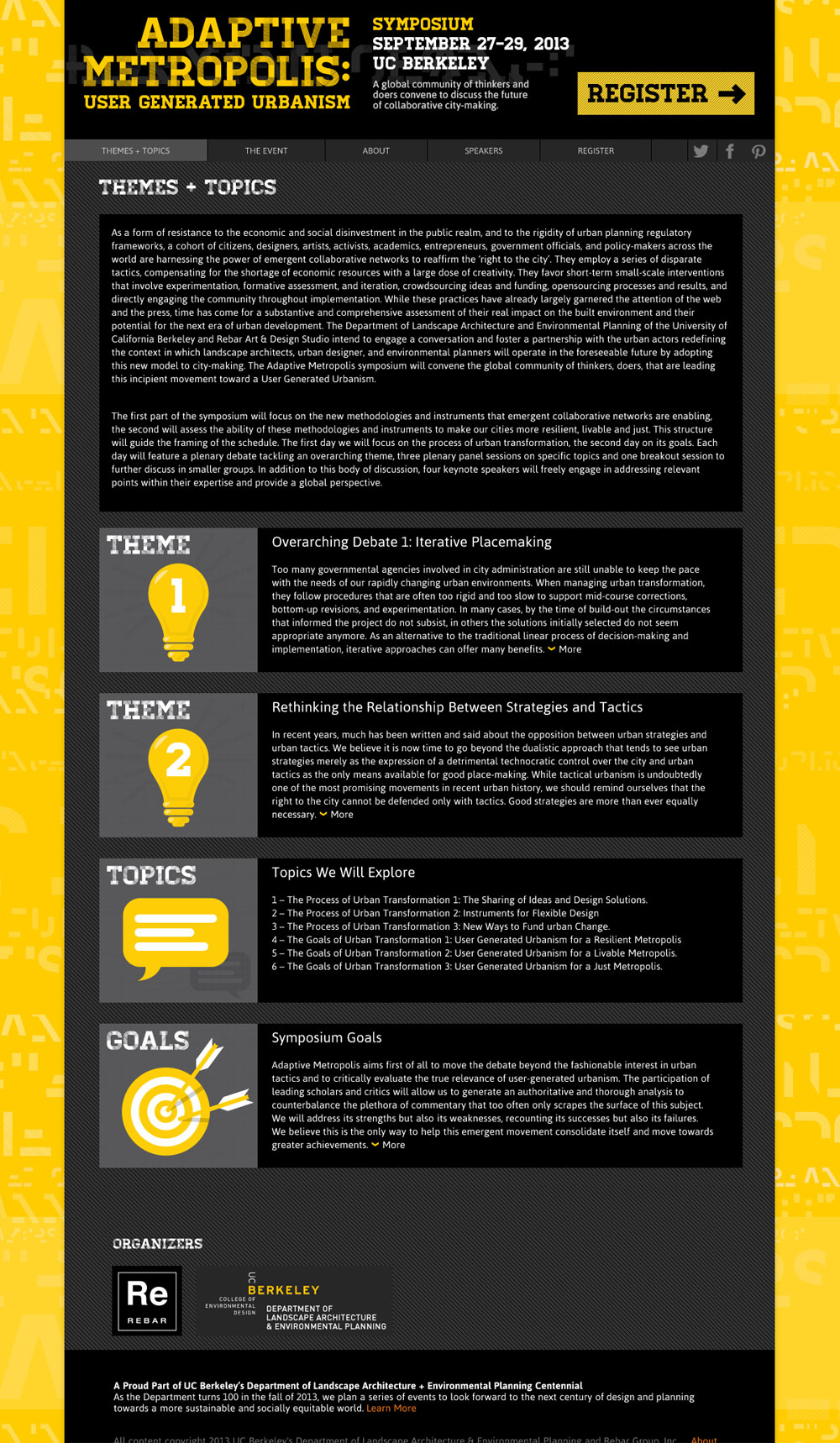The Client
The Adaptive Metropolis symposium convened a global community of thinkers and doers to discuss the future of this model of city-making. Like the symposium itself, the clients behind the project are a diverse but like-minded quorum of creative individuals: Professor Louise A. Mozingo of the UC Berkeley Landscape Architecture program, alumni and members of Rebar, John Bela and Blaine Merker, and Rebar partner Matthew Passmore; all design professionals making a great impact on, and commanding a great deal of respect from, the Urban Design community.
The Project
The symposium was conceived on the occasion of the UC Berkeley Landscape Architecture program’s centennial, with an aim of discussing the way collaborative networks are revolutionizing city-making. While the majority of engagement would happen in-person at the event, the website sought to shed some light on themes and topics facing the field today, including new methodologies and instruments arising from collaborative networks, and the ability for these emergent tools to make cities more resilient, livable, and just.
Collaboration and iteration were terms that came up again and again, as well as the notion of taking to the streets to enact change. Exploring these ideas, a visual language began to emerge that combined asphalt black and caution yellow with bold slab serif webfont Homestead, which is built out of patterned layers that nicely evoke both diagonal-lined construction language and a palimpsest resulting from iteration upon iteration.


